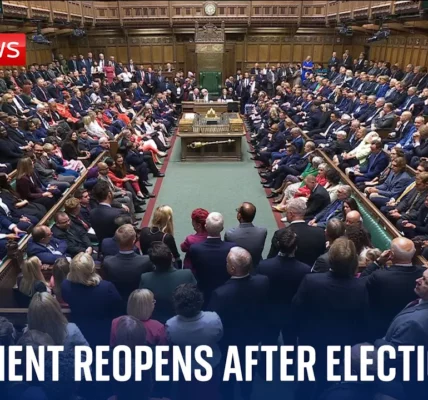Grenfell Tower Fire: Final Report Reveals Systemic Failures and Calls for Justice

The Grenfell Tower fire tragedy, which resulted in the loss of 72 lives, has been scrutinized in a final report that exposes a shocking web of dishonesty and negligence. This article delves into the report’s findings, the ongoing fight for justice, and the implications for fire safety regulations in the UK.
Introduction
On the night of June 14, 2017, the Grenfell Tower fire became a national tragedy, claiming 72 lives and leaving a community devastated. The subsequent inquiry into the disaster aimed to uncover how such a catastrophic event could occur in a modern society. After seven years of investigations, the final report was released, shedding light on systemic failures across various sectors, including the construction industry and government oversight. This article explores the report’s key findings, the ongoing quest for justice, and the broader implications for fire safety regulations in the UK.
The Findings of the Final Report
Systemic Dishonesty and Negligence
The report highlights a disturbing pattern of dishonesty among construction firms, particularly those involved in the manufacturing of cladding and insulation materials. The investigation found that companies such as Arconic, Celotex, and Kingspan engaged in systematic dishonesty, manipulating safety tests and misrepresenting the flammability of their products.
- Arconic: Concealed the true dangers associated with its cladding products.
- Celotex: Misled customers and the wider market regarding the safety of its insulation materials.
- Kingspan: Created a false market for insulation used in high-rise buildings, knowing it was substandard.
These actions contributed to the rapid spread of the fire, resulting in catastrophic consequences for the residents of Grenfell Tower.
Government Accountability
The report also criticizes the UK government for its complacency regarding fire safety regulations. It states that the government was aware of the risks posed by combustible cladding but failed to act decisively. The inquiry chair emphasized that the regulatory framework was fundamentally flawed, allowing conflicts of interest to persist between inspectors and the companies they were meant to scrutinize.
This systemic negligence is highlighted by a series of recommendations aimed at reforming the construction industry. Key proposals include:
- Establishment of a new single regulator for the construction industry.
- Creation of a dedicated fire safety department within the government.
- Strict enforcement of safety regulations to prevent corporate malfeasance.
The Impact on Victims and Survivors
Voices of the Affected
For the families of the victims, the report offers a bittersweet sense of closure but falls short of delivering justice. Survivors have expressed their frustration, demanding not only accountability but also meaningful action to prevent similar tragedies in the future. Many believe that justice should not be limited to corporate fines, which fail to address the human suffering caused by negligence.
One survivor poignantly stated, “Justice to me looks like some people in jail. I don’t want corporate manslaughter; that’s just a huge fine to a company that does nothing.” This sentiment resonates deeply within the community, emphasizing the need for individual accountability alongside systemic reforms.
The Ongoing Fight for Justice
As the report’s findings are digested, the police investigation into the disaster has resumed, with assurances that the best possible case will be presented to the Crown Prosecution Service. Families and survivors are anxiously awaiting the outcomes, hoping for prosecutions that reflect the gravity of the failures described in the report.
Recommendations for Future Safety
Reforming Fire Safety Regulations
The inquiry’s recommendations are seen as a critical step towards preventing another disaster like Grenfell. Key reforms include:
- Implementing stricter regulations on building materials, particularly those used in high-rise construction.
- Enhancing transparency and accountability within the construction industry.
- Improving training and standards for fire safety inspectors.
Experts warn that without robust enforcement mechanisms, these recommendations could become mere formalities without real impact on safety practices.
Community Response and Advocacy
The Grenfell community has shown remarkable resilience in the face of tragedy. Survivors and families have united to demand justice and accountability, often participating in protests and advocacy efforts. Their voices serve as a reminder of the human cost of negligence and the importance of systemic change.
Conclusion
The final report into the Grenfell Tower fire uncovers a harrowing tale of failure, dishonesty, and corporate greed. As families and survivors continue to seek justice, the recommendations for reform present an opportunity for meaningful change in the construction industry and fire safety regulations. The call for accountability must not fall on deaf ears; it is imperative that those responsible for the tragedy face justice, and that steps are taken to ensure such a disaster is never repeated. As we reflect on this tragedy, let us advocate for lasting change in honor of the 72 lives lost.
Call to Action: To support the victims and survivors, consider joining local advocacy groups focused on fire safety reforms and holding corporations accountable for their actions.
“`




